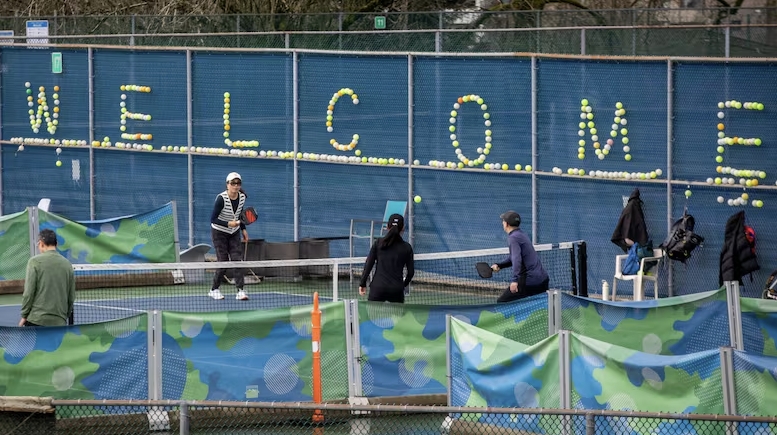Pickleball Caught in Tariff Crossfire as Players Face Price Hikes on U.S. Equipment
Liam O'Connell
3/26/20252 min read


Pickleball, one of Canada’s fastest-growing sports, has become an unexpected casualty in the ongoing trade war between the U.S. and Canada — and players across B.C. are already feeling the sting.
The federal government’s new 25 per cent tariff on U.S.-made sports equipment, imposed on March 13 in retaliation for American levies on Canadian goods, is now driving up the cost of the sport’s most essential piece of gear: the paddle.
“It’s probably going to make huge waves in the pickleball industry,” said Cara Arding, owner of Vernon-based Pickleball Depot, one of Canada’s largest pickleball retailers. “The end consumer is, unfortunately, going to see some price increases.”
Paddle prices under pressure
Pickleball combines elements of tennis, badminton, and ping pong, and relies heavily on paddles — most of which are made by U.S. brands and now subject to the steep new tariff.
Arding said she placed a large bulk order ahead of the tariff's start date to try and shield her customers, but her most recent customs receipts already reflect higher costs. She expects to hold current prices only temporarily before needing to adjust.
“Ultimately, we’ll only be able to hold those old prices so long,” she said.
Buying local — or bypassing the U.S.
To adapt, Arding is turning to Canadian-designed paddles — many of which are manufactured in China — and is also developing house-branded products directly through Chinese factories.
“It’s super important for Canadians right now to be able to buy — even if it’s not manufactured here — something designed by a Canadian company,” she said.
The tariff disruption could also be an opportunity for Canadian manufacturers to grab market share — especially with pickleball’s popularity surging. Pickleball Canada says registered membership grew 25 per cent between 2023 and 2024.
Online workarounds, rising concerns
Landon Kitagawa, president of the Delta Pickleball Association, said players are already finding workarounds by ordering paddles through Chinese platforms like AliExpress or Temu, which allow them to bypass both U.S. brands and tariffs entirely.
“It’s quite a new thing, but I’m seeing more of those paddles showing up at the courts,” said Kitagawa. “Performance-wise, people seem OK with them.”
However, he cautioned that not all paddles qualify for tournament play. To be used competitively in Canada, paddles must be certified by Pickleball Canada.
Still, Kitagawa believes the tariffs could create an opening for Canadian or Chinese manufacturers to fill the gap — as long as their products meet performance and certification standards.
“If all things are equal in terms of quality and pricing,” he said, “Canadian companies could find themselves at an advantage.”
As the sport continues its rapid growth, with clubs popping up across B.C. and beyond, the trade dispute may do more than just raise prices — it could reshape where Canadians get their gear and who controls the court.
News
Stay updated with the latest BC news stories, subscribe to our newsletter today.
SUBSCRIBE
© 2025 Innovatory Labs Inc.. All rights reserved.
LINKS
